Solidigm recently introduced the new PCIe 4.0 D7-P5520 and D7-P5620 family of SSDs targeting enterprise and cloud workloads while reducing TCO. The new D7 SSDs are in full production, with broad qualifications and deployments. Solidigm organized a webinar to provide a deep look into what goes into the design and the resulting increase in performance features that affect real-world workloads.
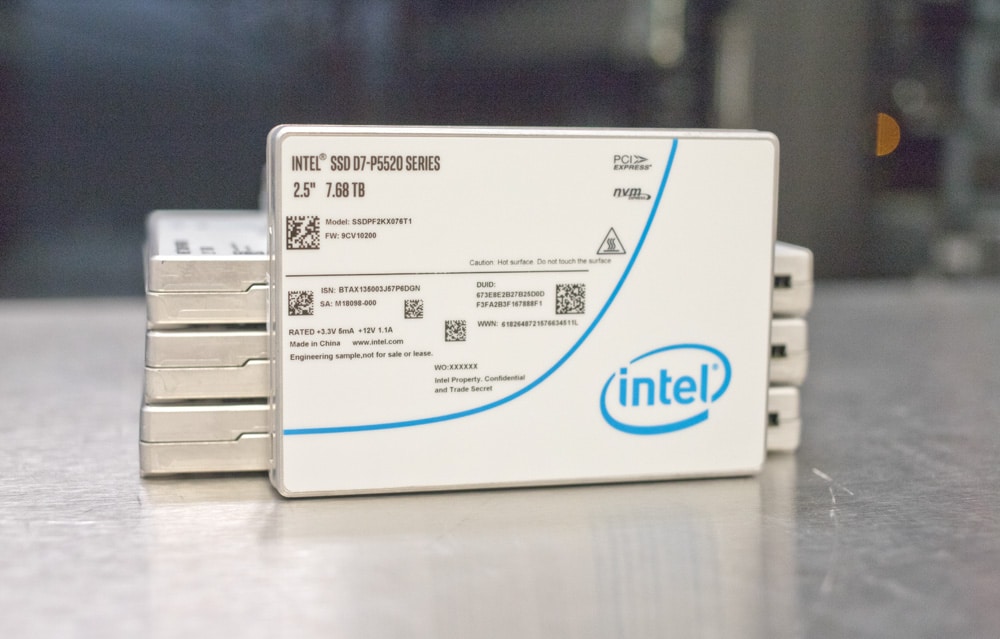
For those who want a deeper performance dive from us on the P5520, we published a full review of the D7-P5520 a few weeks back and are working on a larger set of 8 drive comparisons now.
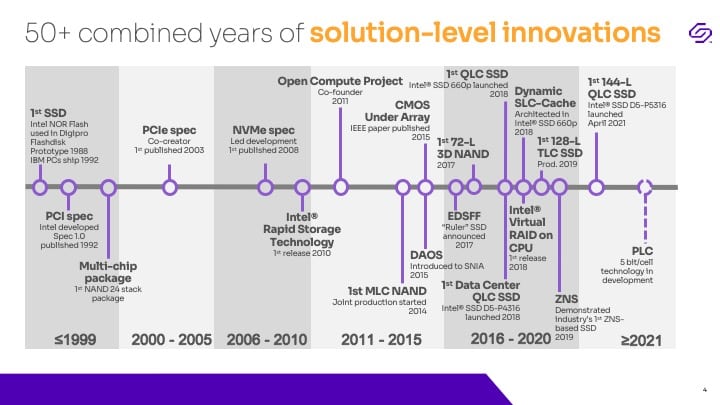
With roots in Intel and SK hynix, Solidigm brings 50 years of storage to the market with innovations spanning all elements of storage solutions. This webinar takes a real-world look into what goes into designing storage devices that meet the performance levels required for modern workloads.
The presentation is hosted by Greg Matson, VP, Strategic Planning and Marketing, providing background, opening remarks, and presenter introductions. Much of the content is delivered by Solidigm’s Director of Product Marketing, Tahmid Rahman. Tahmid walks through the steps that go into the design, tests, and results, along with certifications. Roman Sancho, Sr. Director for Quality and Reliability Engineering at Solidigm, takes the viewer through the in-house QA necessary to meet drive and data reliability and drive durability.
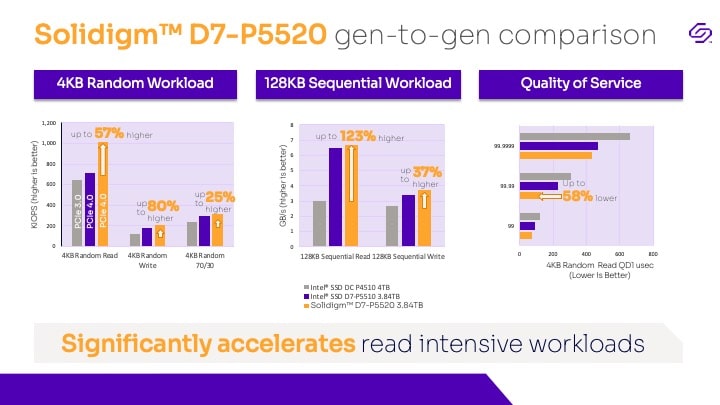
Performance results from cloud tests, as well as five enterprise workloads, are impressive. Highlights include reduced latency and impressive storage workload performance compared to previous generations. Overall, the D7-P5520 demonstrated significant improvements when measured against read-intensive workloads. The 4K Random Read performance increased 57 percent, random writes up to 80 percent higher, and a 70/30 mix of read/write showed an increase of 25% over prior gen, formerly Intel, SSDs.
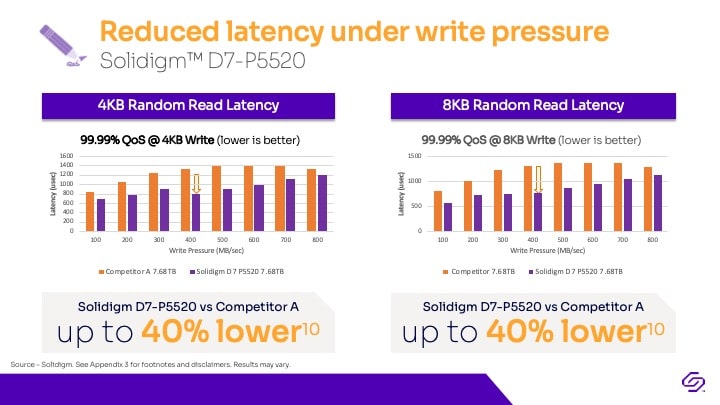
Latency is greatly reduced when write pressure is introduced. This is an important concept Tahmid spends a good amount of time on, reminding us that workloads are rarely monolithic reads or writes. Most workloads are read-heavy that when writes are introduced, can cause serious performance degradation.
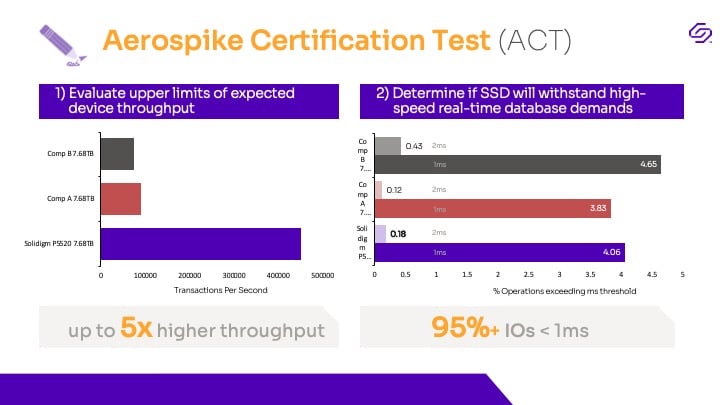
The ACT determines if an SSD device(s) will stand up to the demands of a high-speed real-time database. and evaluates the upper limits of the throughput you can expect from a device. The Aerospike Certification Tool (ACT) performs a combination of large (128k) block reads and writes and small (1.5K) block reads, simulating standard real-time Aerospike Database data read/write and defragmentation loads. To meet the certification the test requires less than five percent of operations to exceed 1ms during a 24-hour test period. The D7 family excels in this test.
Solidigm indicates that the D7-5520 works best in a read-intensive, light mixed workload environment. The D7-5620 excels in mixed workloads and has shown significant improvements for write-intensive workloads. This information becomes helpful when creating write profiles and designing storage systems.
Compared to the competition, the D7- P5520 performs better in both cloud and enterprise general-purpose server workloads.
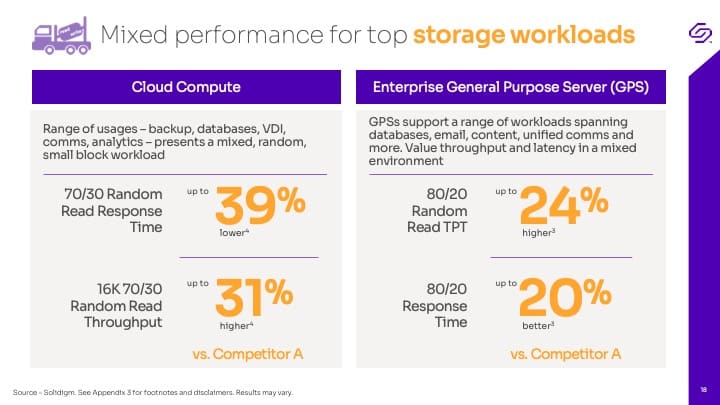
Of course, without quality and reliability, performance will not matter. In this webinar, Roman talks about the tests and the quality control processes all devices must go through before being qualified.
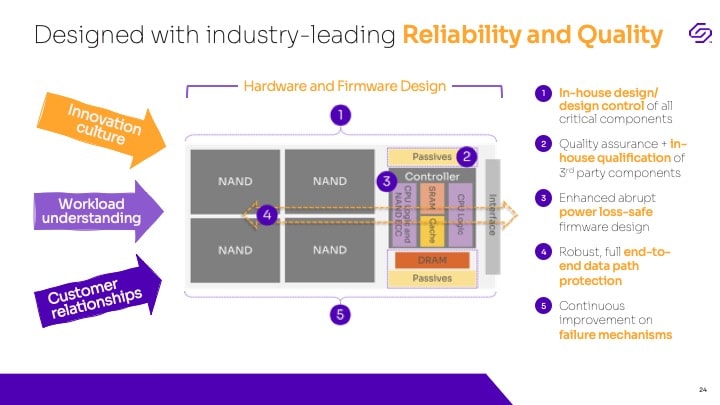
Solidigm controls the design of all major components – NAND, controller, firmware (note that Microsemi will supply controllers in 2022 and 2023). Extra quality checks are performed on 3rd party components with a comprehensive quality assurance program. Undetected data corruption, also known as silent errors, occurs more frequently than perceived and can be very costly. To better protect from silent errors, Solidigm drives design-in extra levels of protection that includes:
- Building in redundancy where both ECC and CRC can be active at the same time
- Protecting all critical storage arrays within the controller – instruction cache, data cache, indirection buffers, and phy buffers
- Extending ECC coverage of SRAM to over 99% which we believe is among the highest in the industry
- Bricking of the drive if unsure a silent error has happened.
This webinar is pretty quick and is very effective, delivering targeted details about the new D7 family of SSDs. It’s not just promotional though, the content reminds us what modern workloads look like, especially cloud and cloud-delivery systems.
Solidigm Under The Hood Webinar
This report is sponsored by Solidigm. All views and opinions expressed in this report are based on our unbiased view of the product(s) under consideration.




 Amazon
Amazon